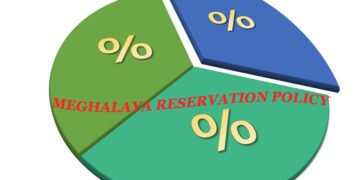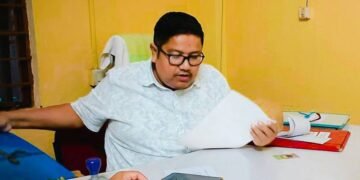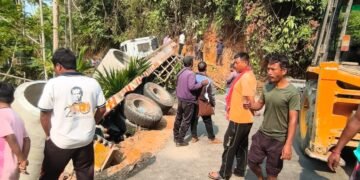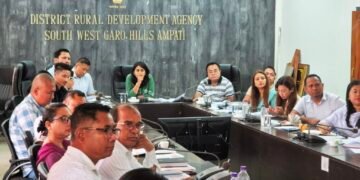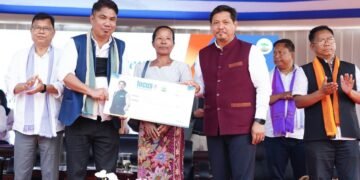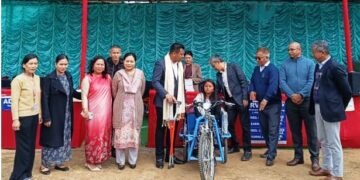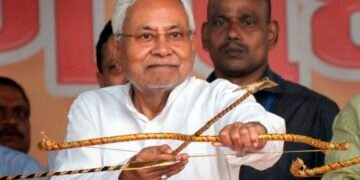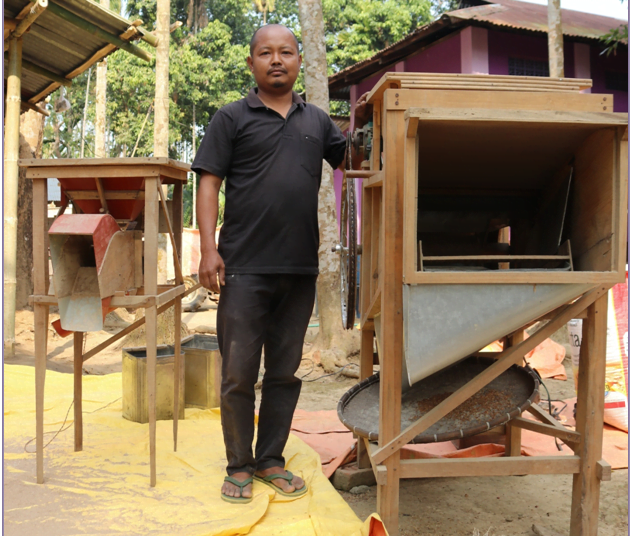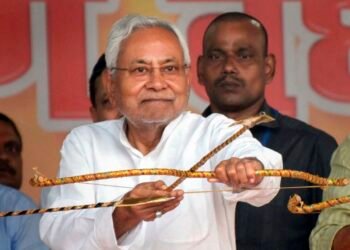Seeing his neighbours toiling away in the fields cultivating paddy inspired one man in a village in North Garo Hills to invent a couple of machines that should make their lives easier.
Even more interesting is the fact that this man, Sabir K Sangma, is not a native to Reking, the village in question, but only ended up there after marrying a local.
Reking is in Kharkutta block, right on the border with Assam and more than 70km away from the district headquarters of Resubelpara. It is home to around 400 people spread across 70 households, though this is according to the 2011 census.
Villagers largely depend on agriculture for their livelihoods and almost all the families possess a plot of land for paddy cultivation.
Sabir is known for his innovative ideas. He hails from Bajengdoba but moved to Reking after marriage.
Although he has no history of paddy cultivation, he was so attached to his new neighbours that he always felt a desire to contribute to their lives.
With a keen interest in mechanics that has been with him ever since childhood, Sabir often helps others in repairing vehicles.
The traditional way of sorting out the paddy once it is harvested – separating the rice from the chaff – has always involved plenty of time and physical energy on the part of villagers.
Noticing his neighbours’ struggles, Sabir the innovator came up with an idea to make things easier for them by developing machines designed for the task.
He dedicated two years to the project, collecting ideas and materials and finished a prototype in 2020 during the Covid-19 pandemic, which he called the ‘paddy winnower’.
The device has two units, each one involved in its own way of winnowing the paddy. The beauty of it is that it requires less energy and manpower and saves money to boot.
The first unit is a wooden device that can be used to separate the harvested paddy from impurities or chaff. These impurities include small stones, leaves, etc. It can also be used to remove pests. This device is used to remove the unwanted particles or impurities before taking the paddy to the rice mill for husking or hulling.
Sabir used naturally occurring materials and purchased some others from hardware shops. The unit is mainly composed of a wooden body, 1hp water pump, plain tin sheet, tin net, cycle rim, belt (usually made from worn clothes), regulator, pulley, generator, switch, fan regulator, etc. The unit is powered by the water pump, which can be powered by a generator.
The second unit is also a wooden device which is used to separate or remove impurities from the rice after the paddy is converted to rice in the rice mill. The device is composed of a wooden body, table fan motor, plain tin sheet, switch, fan regulator, power generator, etc.
The rice along with the husk is first put into the wooden funnel like feeder then it is passed through the mouth of the funnel which is then controlled by the knob meant for the opening and closing of the mouth. The table fan is then put on which rotates the blades and produces wind which segregates the rice from the impurities. The rice is then collected in the tin and the husk is separated through the outlet. The husk can be used to feed animals like cows and pigs.
The device has been designed in such a way as to be easy to fix or for broken down parts to be replaced. Compared to modern winnowing devices used by farmers, this device is less expensive.
Sabir plans to make the units in great numbers as some people of the locality have asked him to produce units for them.
CLLMP, North Garo Hills assistant manager, Felicitha Arengh who documented Sabir and his machine said, “Considering all the above facts it can be concluded that the device, if it can be produced in a great numbers after availing financial help, will benefit farmers in a great way as the unit will help the farmers in saving time, money, energy, manpower, etc.”
She said that the device will produce equal opportunities of income as it is easily operable and can be operated by both man and woman.
Informing that the unit is eco-friendly and produces less noise and will have no adverse affect on environment, Arengh said that Sabir has a plan to manufacture certain project which could become useful in daily activities.


